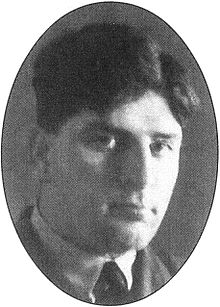Nigel Cullen | |
|---|---|
 Undated portrait of Nigel Cullen | |
| Birth name | Richard Nigel Cullen |
| Nickname(s) | "Ape" |
| Born | 5 June 1917 Newcastle, New South Wales |
| Died | 4 March 1941 (aged 23) Himarë, Albania |
| Allegiance | Australia United Kingdom |
| Service/branch | Royal Air Force |
| Service years | 1937–41 |
| Rank | Flight Lieutenant |
| Unit | No. 267 Squadron RAF (1940) No. 80 Squadron RAF (1940–41) |
| Battles / wars | |
| Awards | Distinguished Flying Cross |
| Relations | Paul Cullen (uncle) |
Richard Nigel Cullen, DFC (5 June 1917 – 4 March 1941) was an Australian fighter ace of World War II. Serving with the Royal Air Force (RAF), he was credited with as many as sixteen aerial victories before being killed in action during the Battle of Greece. Born in Newcastle, New South Wales, Cullen was living in London and had already seen action in the Spanish Civil War when he joined the RAF in 1937. Following the outbreak of World War II, he served initially as a transport pilot with No. 267 Squadron in the Middle East before seeking reassignment to fighters. He was then posted to No. 80 Squadron, flying Gloster Gladiator biplanes, and claimed six Axis aircraft before the unit converted to Hawker Hurricanes. Nicknamed "Ape" due to his physical bulk, Cullen was awarded the Distinguished Flying Cross for destroying five enemy aircraft in a single sortie on 28 February 1941. He was credited with another four victories in the one engagement on 3 March; the next day, he was shot down and killed while on escort duty over Albania, by a Regia Aeronautica Fiat G.50bis, at age twenty-three.